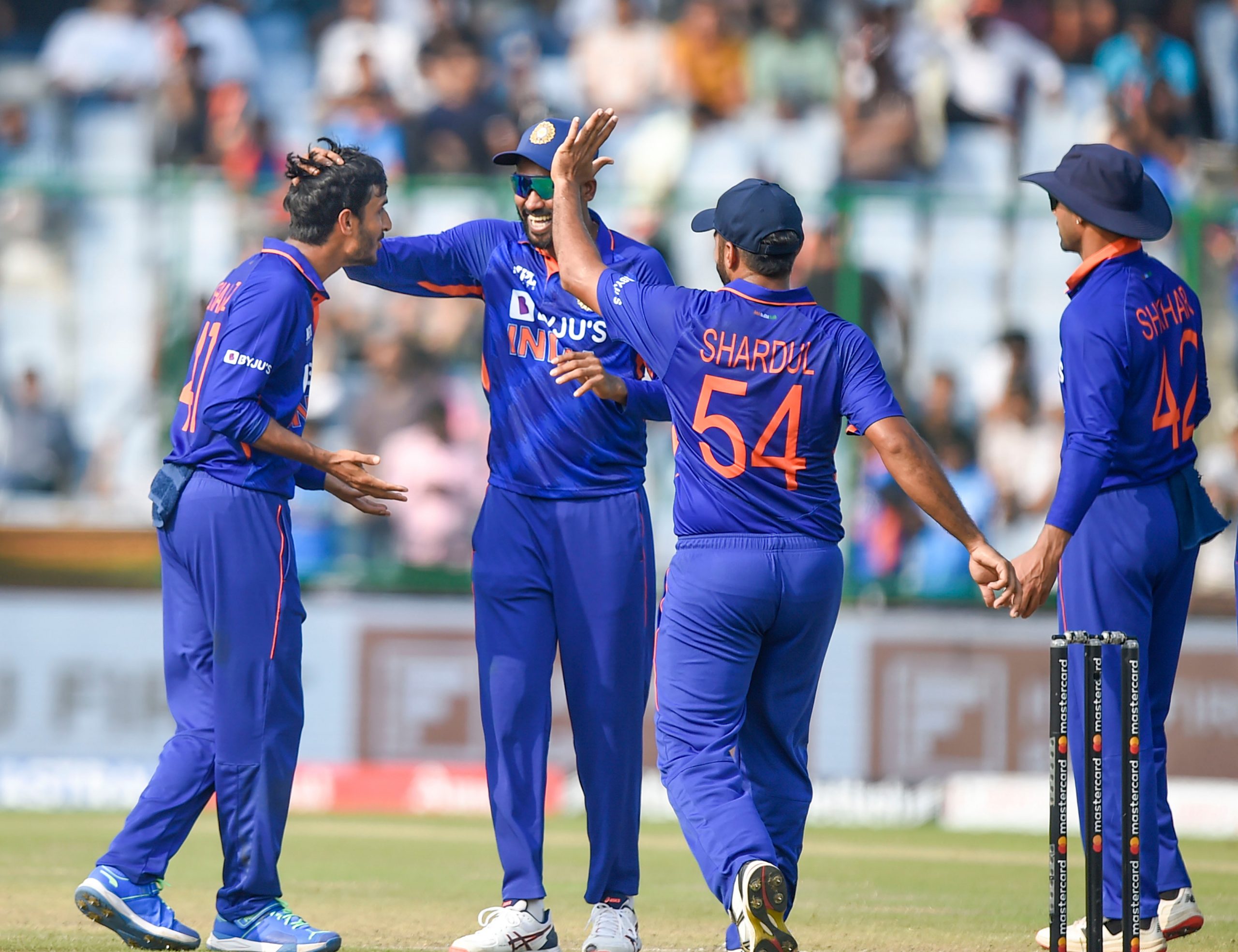In the third and final game of the series, which was played in Delhi, Kuldeep Yadav recorded his second-best ODI statistics of 4/18 as India’s bowlers bowled out South Africa for their lowest score ever against India in ODIs.
Shahbaz Ahmed, Washington Sundar, and Mohammed Siraj all took two wickets each to help Kuldeep demolish the Proteas’ batting order. After defeating the visitors by a score of 2-1 in the T20Is, the Men in Blue used this to wrap up the series.
Also read: India vs South Africa 3rd ODI: Kuldeep Yadav the star on spinners’ day out
Shikhar Dhawan, the captain, said that after winning the toss, he decided to field first in the match. The South Africans, who had three different captains over the course of a three-match ODI series, were led by David Miller this time.
Quinton de Kock, a wicketkeeper-batter, scored his second single-digit score in as many games before being defeated by Sundar for just six.
Also read: India beat South Africa by 7 wickets in 3rd ODI, win series 2-1
Janneman Malan was fired for 15 by Siraj, failing to make a significant contribution once more. Reeza Hendricks and Aiden Markram, half-centurions from the previous game, only amassed three and nine points, respectively, while captain Miller made seven.
Heinrich Klaasen led the way for the visitors with 34 points out of a possible 42. In just 4.1 overs, Kuldeep used his web to take four wickets for 18 runs, including a maiden.
Also read: South Africa puts up 99, their lowest score against India in an ODI
In the face of a strong all-around performance by the Indian bowling attack, the Proteas never really seemed like scoring a lot.
Dhawan, the captain, scored only 25 runs in the series and was run out for just eight runs when chasing just 100.
Shubman Gill, who batted with him in the opening position, played an easy 49 off 57 with the aid of eight boundaries. Shreyas Iyer, who has been in great form, finished the formality for the hosts in just 19.1 overs while remaining unbeaten on 28 off 23.
Also read: ICC T20 World Cup 2022: 5 players who are missing out for injuries
Both teams are now getting ready for the T20 World Cup, which starts on October 16 in Australia.
Kuldeep received the Player of the Match honour, and Siraj received the Player of the Series award for his five kills at a 4.52 economy rate.
Also read: T20 World Cup 2022: How India’s starting XI could look like
Following are some interesting statistics from the match:
99: In ODIs, South Africa’s score against India was the lowest ever. Previously, in Nairobi in 1999, they could only muster 117 points.
4/18: Kuldeep Yadav recorded his second-best ODI statistics of 4/18. The best of his spells was 6/25 against England in Nottingham in 2018.
4: The 99 points South Africa scored was also their fourth-worst ODI total. 69 against Australia in 1993 and 83 against England in 2008 and 2022, respectively, are their prior three lowest scores.
38: India and Australia tied for the record of 38 victories in a calendar year of international cricket. In 2003, the Australians had the same number of victories.
3: India lost to the Proteas by the third-largest margin in terms of balls remaining (185). In 2008 and 2002, respectively, England and Australia defeated South Africa with 215 and 188 deliveries, respectively.
25: Only 25 runs, at an average of 8.33, were scored by Shikhar Dhawan in the series’ first three games.
24: Against South Africa, Kuldeep has now grabbed the fifth-most ODI wickets for India. The top four players are Anil Kumble (46), Harbhajan Singh (31), Javagal Srinath (28), and Venkatesh Prasad (25).
5: With their most recent loss coming against the Proteas at home in January of this year, India also won their sixth straight ODI series.
1: For the first time ever in a three-match ODI series, South Africa made history by using three different captains.
1: Additionally, the Proteas scored 99 runs, the lowest total in a one-day international, in Delhi (excluding rain-curtailed games). The Netherlands’ 115 vs West Indies in the 2011 World Cup was the previous low score.







